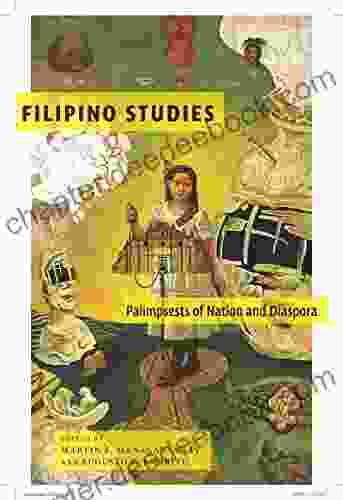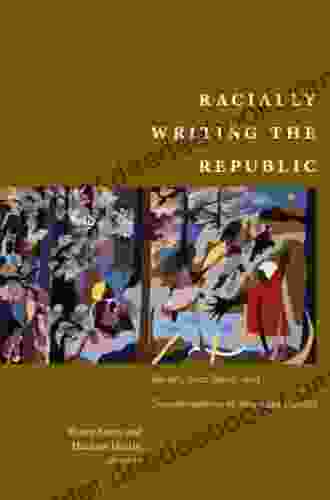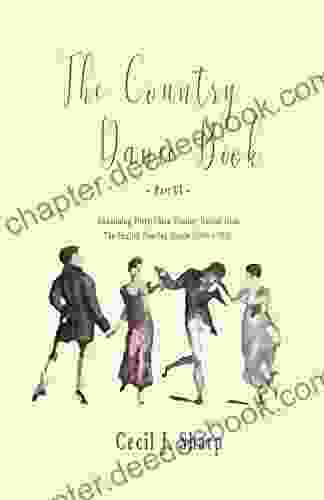Filipino Studies: Palimpsests of Nation and Diaspora

Filipino studies is an interdisciplinary field of study that examines the history, culture, and society of the Filipino people. It is a relatively new field, with most of the major works being published in the last 50 years. However, the roots of Filipino studies can be traced back to the early 20th century, when Filipino scholars began to challenge the dominant narratives of Philippine history and culture that had been written by European and American scholars.
One of the most important aspects of Filipino studies is its focus on the Filipino diaspora. The Filipino diaspora refers to the millions of Filipinos who have left the Philippines to live in other countries. The diaspora is a complex and diverse group, with Filipinos living in all corners of the globe. Filipino studies scholars have examined the experiences of the diaspora in a variety of ways, including their struggles with identity, their contributions to their new countries, and their relationships with the Philippines.
5 out of 5
| Language | : | English |
| File size | : | 2001 KB |
| Text-to-Speech | : | Enabled |
| Screen Reader | : | Supported |
| Enhanced typesetting | : | Enabled |
| Word Wise | : | Enabled |
| Print length | : | 434 pages |
Another important aspect of Filipino studies is its focus on social justice. Filipino studies scholars have long been involved in the fight for social justice for Filipinos both in the Philippines and abroad. They have worked to document the experiences of Filipinos who have been marginalized and discriminated against, and they have advocated for policies that would improve the lives of Filipinos.
The History of Filipino Studies
The history of Filipino studies can be divided into three periods: the early period (1900-1945),the middle period (1945-1980),and the late period (1980-present).
The early period of Filipino studies was dominated by the work of Filipino scholars who were writing in response to the dominant narratives of Philippine history and culture that had been written by European and American scholars. These scholars sought to challenge these narratives and to provide a more accurate and nuanced account of the Filipino experience. Some of the most important scholars of this period include Teodoro Agoncillo, Renato Constantino, and Claro M. Recto.
The middle period of Filipino studies was marked by the growth of the field and the emergence of new areas of research. During this period, scholars began to examine the experiences of the Filipino diaspora, the role of women in Philippine society, and the impact of colonialism on Philippine culture. Some of the most important scholars of this period include Doreen Fernandez, Isagani R. Cruz, and E. San Juan, Jr.
The late period of Filipino studies has been marked by the continued growth of the field and the emergence of new approaches to research. During this period, scholars have begun to use new methodologies and theories to examine the Filipino experience. Some of the most important scholars of this period include Vicente Rafael, Michael L. Tan, and Bienvenido Lumbera.
The Palimpsests of Nation and Diaspora
The concept of the palimpsest is a useful way to understand the complex and dynamic relationship between nation and diaspora. A palimpsest is a manuscript or document that has been written over and over again, so that the original text is still visible beneath the later layers of writing. In the same way, the Filipino nation and diaspora are both palimpsests, with the layers of history, culture, and identity that have been written over them still visible today.
The Filipino nation is a palimpsest of the many different cultures and peoples that have come together to form the Philippines. The indigenous cultures of the Philippines have been layered over by the cultures of Spain, the United States, and other countries. The Filipino diaspora is also a palimpsest, with the experiences of Filipinos in different countries layered over the experiences of Filipinos in the Philippines.
The concept of the palimpsest is a reminder that the Filipino nation and diaspora are not static entities, but rather are constantly being shaped and reshaped by the experiences of Filipinos. The layers of history, culture, and identity that have been written over the Filipino nation and diaspora continue to influence the ways that Filipinos understand themselves and their place in the world.
The Importance of Filipino Studies
Filipino studies is an important field of study for a number of reasons. First, it provides a more accurate and nuanced account of the Filipino experience than the dominant narratives that have been written by European and American scholars. Second, it helps to document the experiences of Filipinos who have been marginalized and discriminated against. Third, it advocates for policies that would improve the lives of Filipinos.
Filipino studies is also important because it helps to promote understanding between Filipinos and other peoples. By providing a more accurate and nuanced account of the Filipino experience, Filipino studies can help to dispel the stereotypes and misconceptions that often surround Filipinos. Filipino studies can also help to bridge the gap between Filipinos and other peoples by providing a forum for dialogue and exchange.
Filipino studies is a vibrant and growing field of study that is making important contributions to our understanding of the Filipino experience. Filipino studies scholars are challenging the dominant narratives of Philippine history and culture, documenting the experiences of Filipinos who have been marginalized and discriminated against, and advocating for policies that would improve the lives of Filipinos. Filipino studies is also important because it helps to promote understanding between Filipinos and other peoples. By providing a more accurate and nuanced account of the Filipino experience, Filipino studies can help to dispel the stereotypes and misconceptions that often surround Filipinos. Filipino studies can also help to bridge the gap between Filipinos and other peoples by providing a forum for dialogue and exchange.
5 out of 5
| Language | : | English |
| File size | : | 2001 KB |
| Text-to-Speech | : | Enabled |
| Screen Reader | : | Supported |
| Enhanced typesetting | : | Enabled |
| Word Wise | : | Enabled |
| Print length | : | 434 pages |
Do you want to contribute by writing guest posts on this blog?
Please contact us and send us a resume of previous articles that you have written.
 Novel
Novel Page
Page Text
Text Reader
Reader Paperback
Paperback E-book
E-book Magazine
Magazine Paragraph
Paragraph Sentence
Sentence Bookmark
Bookmark Shelf
Shelf Foreword
Foreword Preface
Preface Manuscript
Manuscript Scroll
Scroll Bestseller
Bestseller Library card
Library card Memoir
Memoir Reference
Reference Dictionary
Dictionary Thesaurus
Thesaurus Narrator
Narrator Character
Character Resolution
Resolution Librarian
Librarian Catalog
Catalog Borrowing
Borrowing Stacks
Stacks Archives
Archives Periodicals
Periodicals Scholarly
Scholarly Lending
Lending Academic
Academic Reading Room
Reading Room Rare Books
Rare Books Special Collections
Special Collections Study Group
Study Group Thesis
Thesis Dissertation
Dissertation Textbooks
Textbooks Steve Franz
Steve Franz Mohamed Farag
Mohamed Farag Janellea Macbeth
Janellea Macbeth Isabella Emma
Isabella Emma Gabriel Williams
Gabriel Williams Lynn Radice
Lynn Radice David Kipen
David Kipen Hanspeter A Mallot
Hanspeter A Mallot Vanessa Williams
Vanessa Williams Ed Sarath
Ed Sarath Lindsey Davis
Lindsey Davis Tina Rasalla
Tina Rasalla Patry Francis
Patry Francis Coleen Ellis
Coleen Ellis Stephen Colegrove
Stephen Colegrove Julie Krantz
Julie Krantz Lee M Hollander
Lee M Hollander Rebecca Ringquist
Rebecca Ringquist Jennifer C Wolfe
Jennifer C Wolfe Marie Bernadette Dupuy
Marie Bernadette Dupuy
Light bulbAdvertise smarter! Our strategic ad space ensures maximum exposure. Reserve your spot today!

 Patrick Hayes18 Days in Slovenia: An Unforgettable Journey Through a Land of Enchanting...
Patrick Hayes18 Days in Slovenia: An Unforgettable Journey Through a Land of Enchanting... Harvey HughesFollow ·4.8k
Harvey HughesFollow ·4.8k Howard BlairFollow ·2.4k
Howard BlairFollow ·2.4k Evan HayesFollow ·14.2k
Evan HayesFollow ·14.2k Gene SimmonsFollow ·11.7k
Gene SimmonsFollow ·11.7k Warren BellFollow ·10.9k
Warren BellFollow ·10.9k Gabriel MistralFollow ·7.2k
Gabriel MistralFollow ·7.2k Amir SimmonsFollow ·11.1k
Amir SimmonsFollow ·11.1k Emmett MitchellFollow ·6.4k
Emmett MitchellFollow ·6.4k

 F. Scott Fitzgerald
F. Scott FitzgeraldRobot Buddies: Search For Snowbot
In the realm of...

 Mario Vargas Llosa
Mario Vargas LlosaUnlocking Academic Success: A Comprehensive Guide to...
In the ever-challenging academic...

 Gabriel Blair
Gabriel BlairMake $000 Per Month Selling Your YouTube Freelancing...
Are you looking for a...
5 out of 5
| Language | : | English |
| File size | : | 2001 KB |
| Text-to-Speech | : | Enabled |
| Screen Reader | : | Supported |
| Enhanced typesetting | : | Enabled |
| Word Wise | : | Enabled |
| Print length | : | 434 pages |
















